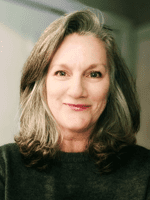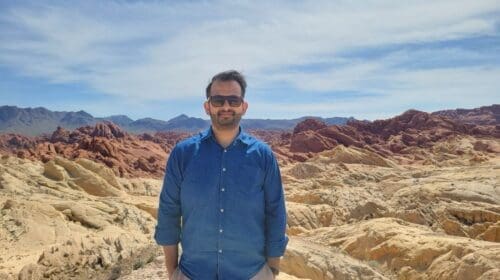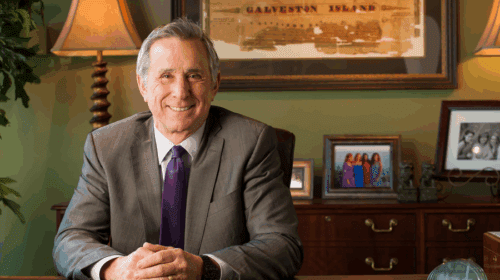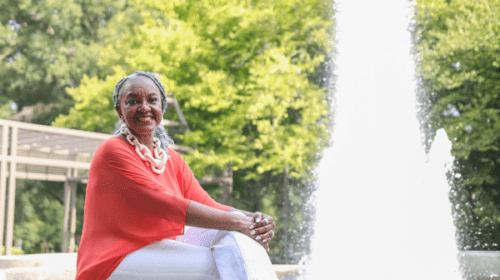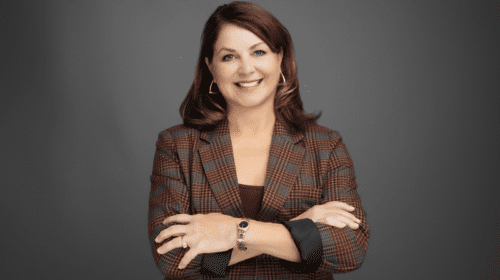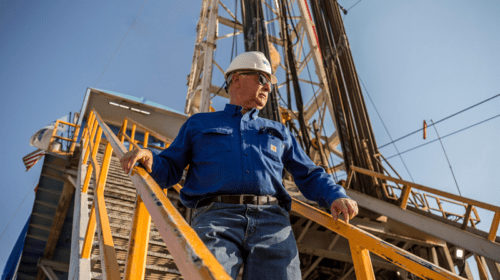They are the explorers, the treasure hunters in search of black gold. Every exploration and production (E&P) venture is a gamble with no certainty of the outcome, although extensive measures are taken every step of the way to ensure a profitable outcome. While some companies are scaling back on oil and gas exploration and production projects to focus on alternative forms of energy, there are parts of the world that are only beginning to explore the vast natural resources that lie beneath the earth and have the potential to change the fate of a nation, as Belize Natural Energy (BNE) Chairperson Susan Morrice shares from her own experience. We talked to some of the experts about what goes into a successful E&P campaign and where the next big play may lie just waiting to be discovered by some intrepid explorer.
What is the most exciting discovery you have been involved with in your career?
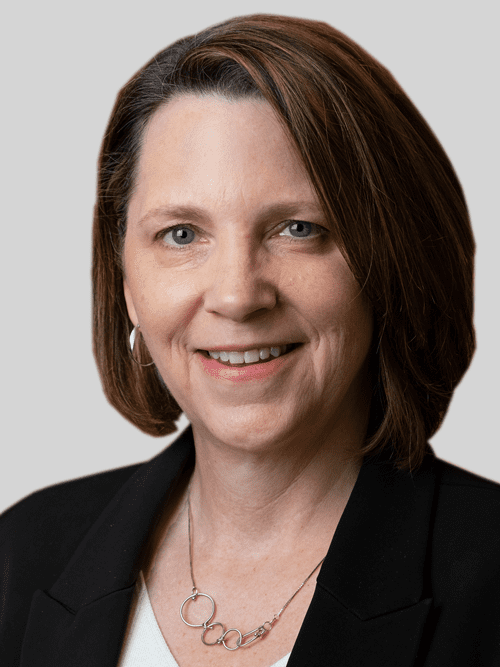
Tracey Henderson is the senior vice president of exploration for APA Corp. Prior to joining APA, Henderson was the chief exploration officer for Kosmos Energy. She holds a master’s degree in geophysics and a bachelor’s in geology from the University of Texas at Dallas.
As an explorer, discoveries are always exciting. Whenever an exploration well is drilling and nearing the primary target, I always get this building sense of anticipation and excitement. No matter how many wells I have participated in drilling, that feeling has never left me. If I had to pick one discovery of note, I would say the Jubilee field in Ghana. It was a billion-barrel discovery in an area that the industry had largely written off, so it was a real wildcat. That discovery provided me the opportunity to work a project from the concept or idea stage, to the first discovery well and through the appraisal stage. That experience was invaluable.
Suriname has the potential to compete for the top spot for exciting discoveries. On Block 58, APA and TotalEnergies made four exploration discoveries in the first four attempts and the prospects we see are world class. Offshore Suriname-Guyana is an emerging basin so each well brings with it new learnings. I actually believe the most exciting discovery I may see in my career is still ahead of me.
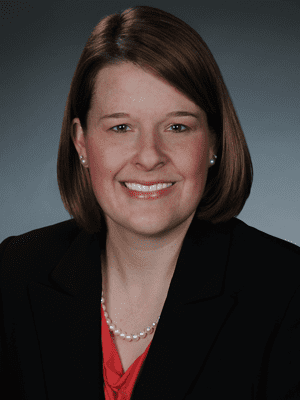
Kerry Moreland is the vice president, Established Areas, Exploration & New Ventures, at ExxonMobil. She began her career at ExxonMobil in 2005 after completing her bachelor’s degree in geoscience and master’s degree in geophysics from the University of Oklahoma.
I served as exploration manager for the Guyana Suriname Basin at the time we made our first discovery in Guyana in 2015. Watching this discovery progress to first oil in 2019, and the positive corresponding impact on the Guyanese people and economy, has been a highlight of my career. Our Guyana success reenergized exploration as a whole for the industry and has had a tremendous impact on high-grading and growing our own industry-leading portfolio of development opportunities. The technical insights gleaned from that experience have positioned our exploration teams for future success, as we apply these learnings in new and underexplored basins, worldwide.
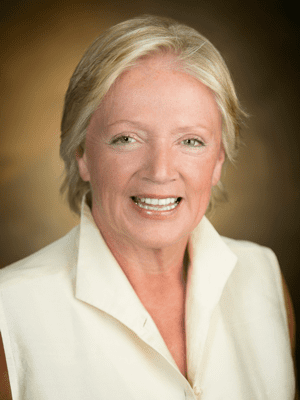
Susan Morrice is the co-founder and chairperson of Belize Natural Energy. Morrice holds an MoD degree in natural sciences/geology from Trinity College in Dublin, Ireland.
The first oil discovery in Belize. All the odds were against us – 50 dry wells with everyone saying we were nuts; there was no oil in Belize. We only had enough money for two wells – statistically it takes 10-15 wells to discover oil in an entirely new basin in a new country. We struck oil on the very first well and have been the number one revenue generator in the country for over 12 years.
It was about more than oil; it was about the people of Belize and the sustainable transformation of a country. It was like all our birthdays at once. The Prime Minister and Cabinet came out to see our discovery that led to turning around the fate of a nation.
What is the “secret” to a successful E&P campaign?
TH: It’s people. There is no process or strategy that can substitute for having experienced, talented individuals in the right roles. For exploration, you need creative thinkers, but these individuals also need to be highly skilled in their disciplines and able to work collaboratively on high-performing teams. As projects move from exploration to appraisal and development, you need individuals who are detail-oriented integrators who can find innovative, cost-effective ways to develop resources. It takes talented individuals working in leadership roles and in teams focused on the right geographies and on the right projects.
KM: We look back now on the 2015 Liza discovery with certainty, but most forget that 61 unsuccessful wells were drilled offshore in the Guyana basin beforehand. ExxonMobil’s success story in Guyana is one of patience and resilience; of rejecting long-held paradigms and not allowing what others couldn’t see [to] be a deterrent. It’s about a diverse team, with a deep understanding of the tectonic history and basin genetics, asking the question, “What would it take to make this work?” It’s about creativity, innovation, technology, a unique hypothesis and people with the courage of conviction to stay the course.
SM: Everyone needs to be working in unity with the same vision. This comes more easily with an understanding of how our minds work for best performance and utilizing each individual’s full capacity. I took the words of AAPG founder Wallace Pratt very seriously. He said, “Oil is found in the mind.” How many of us have studied and understood our minds and actually applied that understanding to what we really want? I studied the Educo Model with its independently accredited and verified results in the area of human potential and performance, and then applied what I learned to our dream of discovering oil in Belize, with and for the people. Belize Natural Energy is the prototype with a proven case history for this new educational model, which other companies and countries have and can emulate for outstanding results.
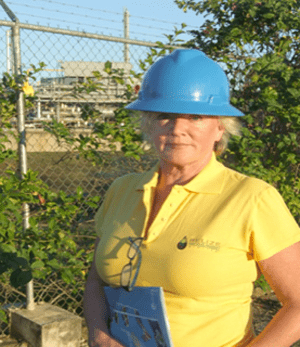
Where do you envision the next global hot spot for E&P?
TH: That is a challenging question because so much has changed in the macroenvironment, and there are far fewer companies exploring today than there were just two to three years ago. Today, most companies are focused in their core areas and capital discipline is still an overarching theme. Also, we are seeing the majors make significant shifts in strategy related to other forms of energy that will impact the number and types of oil and gas projects that they will participate in. I wonder if we will see the same herd mentality in frontier and emerging basin exploration that has historically driven exploration hot spots. That is good news for companies that want to explore, and I believe there will be great opportunities in both frontier and emerging areas and in proven basins around the globe.
KM: Since 2017, we have been awarded access to over 105 million acres, across 24 countries, which may hold the next big global discovery. With that said, “hot spots” require more than just good rocks. Stable policy, contracts and fiscal regimes are critical to attract foreign direct investment and are key factors ExxonMobil considers when prioritizing near-term capital investments. Reliable fiscal terms on assets offering value and attractive shareholder returns are the hallmark of great investments. In our most successful cases, we have developed collaborative partnerships with host governments to create a predictable business environment that benefits both the investor and the host country.
SM: Undoubtedly the exploration within ourselves. The next global hot spot is not a geographic location; it is the discovery of what lies within. Uncovering the unlimited capacity and energy that the planet/universe is waiting for is the explorative journey of a lifetime. From a cleared mind – allowing for the unleashing of this latent energy within – ideas and actions emanate in unity and for the good of all.
For example, the heightened, innovative mind utilizes all aspects. At BNE, we realized we could make use of strategic minerals such as lithium, cobalt and the calcium-rich salts in the brine waters of the oil and gas wells. Thus, many of the oil fields’ brines will be used to produce battery minerals, salts and distilled drinking water. All over the world, the hot brine waters are mining the strategic minerals that are brought up from the previously drilled wells and, in so doing, eliminating the mining scars on the landscape.
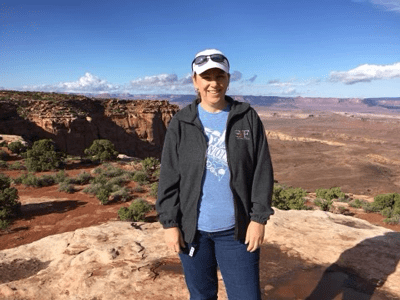
With the current emphasis on renewables, what do you see as the future of E&P going forward?
TH: For many of us, energy helps sustain our modern, healthy lifestyles. However, across the globe, nearly 800 million people lack access to electricity and about 2.8 billion live without access to clean cooking facilities. People need reliable energy, and the solution will continue to come in many forms. In fact, in its 2020 World Energy Outlook, the International Energy Agency (IEA) forecasts that oil and gas will supply 46 percent of the world’s energy needs in 2040 in its Sustainable Development Scenario that “puts the energy system on track to achieve sustainable energy objectives in full, including the Paris Agreement, energy access and air quality goals.” Oil and natural gas help power electricity, fuel tractors and trucks, make fertilizer to keep the world’s food supply on the table and heat our schools, hospitals and homes. We are focused on finding innovative and sustainable ways to meet global energy demand for decades to come.
KM: ExxonMobil is taking action to help the transition to a lower carbon energy system by reducing emissions from its operations, advancing technologies needed for lower emissions energy and making investments to help meet the continuing demand for affordable energy and essential products for modern life. Exploration plays a vital role in that equation. Geoscience and engineering skill sets will be required to advance technology, such as carbon capture and storage. E&P professionals, with insights on reservoir prediction and performance, fluid flow dynamics, pressure maintenance, as well as seal integrity, will be critical to the successful advancement and implementation of CCS technologies.
SM: This is a time of phenomenal opportunity across the board in realms that we are only just beginning to imagine. The unleashed energy from within, in alignment with life, is the renewable of all renewables. The technology behind all technologies is our fully opened and connected mind, something Einstein spoke of in letters to his daughter, Lieserl. No one wants to go back to pre-pandemic paradigms; we are in an entirely new era. It is time to embrace this transformation and learn to let our life force guide us in harmony with the environment and universe.
Reprinted by permission. This article originally appeared in the October 2021 issue of NAPE Magazine.
Headline photo: Kerry Moreland during her time as ExxonMobil’s Guyana exploration manager.
Rebecca Ponton has been a journalist for 30+ years and is also a petroleum landman. She is the author of Breaking the GAS Ceiling: Women in the Offshore Oil and Gas Industry (Modern History Press; May 2019). She is also the publisher of Books & Recovery.
Oil and gas operations are commonly found in remote locations far from company headquarters. Now, it's possible to monitor pump operations, collate and analyze seismic data, and track employees around the world from almost anywhere. Whether employees are in the office or in the field, the internet and related applications enable a greater multidirectional flow of information – and control – than ever before.


